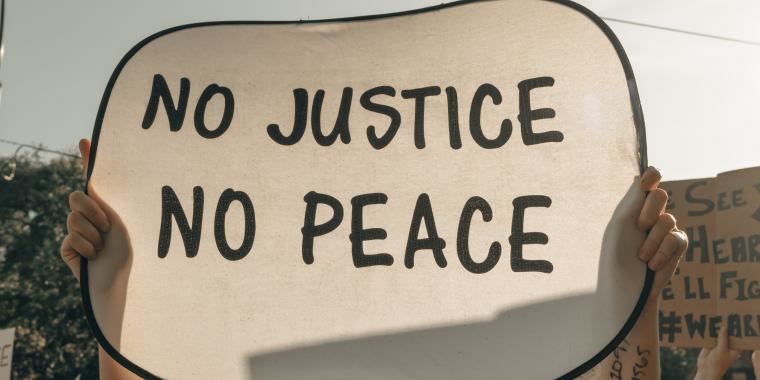The world is becoming ever more digital, and our legal system is no exception. The backlog of cases waiting to be tried in Scotland is now in excess of 40,000 cases. To help move these through the system, courts are turning more towards remote hearings, with participants taking part digitally.
Citizens Advice Scotland (CAS) is closely monitoring this move to digital services, which has both benefits and disadvantages. We want to make sure everyone has access to justice, no matter their geography, individual circumstances, or area of need.
We know that some court and tribunal users feel positively about remote hearings, especially where they have personal circumstances that make attending in person more difficult. Some also feel less pressure and stress from participating in their homes rather than travelling to a court room.
However, we also know that remote hearings can disproportionately disadvantage party litigants (people who represent themselves) or clients who are assisted by Citizens Advice Bureau (CAB) and In-Court advice services.
CAB advisers who support people in legal cases tell us of clients who experienced technological problems which prevented them from joining virtual platforms at short notice. They were unable to alert court staff to this, so the Sheriff assumed they had opted not to participate and went on to grant orders, such as eviction or custody, which impact hugely on people’s lives.
Advisers also note that body language may be mis-read over a screen, and clients can fail to appreciate the gravity of court proceedings and struggle to understand what is happening during remote hearings.
The rising cost of living also raises issues; when people are having to choose between food and heating, the cost of internet access is a barrier to accessing services. These costs are also increasing, something I can testify to as my own Wifi costs went up by 10% in March. The use of remote hearings looks set to become the “new normal” so we need to ensure people can access them affordably.
Cost is not the only barrier in accessing court services. In our research we also see poor broadband connections, lack of digital literacy, and inaccessibility for those with a disability as barriers to digital participation.
So, what is the solution? In CAS’s view it is channel choice for users. Current proposals suggest that a hearing will be largely determined by the type of procedure being used, rather than the needs of the individual. CAS would like to see this turned on its head.
We want everyone to be able to access justice in the way that best suits their needs and facilitates their understanding and involvement, whether that be in person, via telephone or video-link. The way a court hearing takes place should be influenced by people’s needs as well as the nature of the hearing or action. We don’t believe this should be decided just by the courts or sheriff.
Many organisations working on justice issues, including Scottish Government, want to put people at the heart of the justice system. We need them to deliver on that intention. This is what people in Scotland want when accessing justice services; now we need to make it a reality.
----
Andrew Fraser is a Senior Policy Officer in the Strong Communities team at Citizens Advice Scotland. This article originally appeared in the Herald on Monday 25 April 2022.
